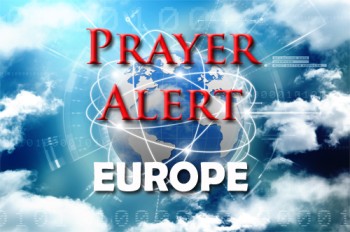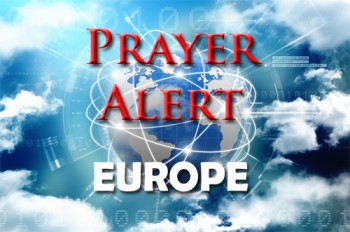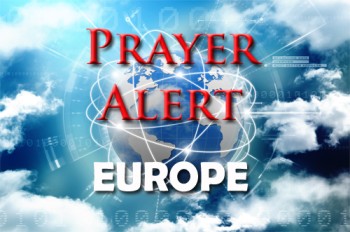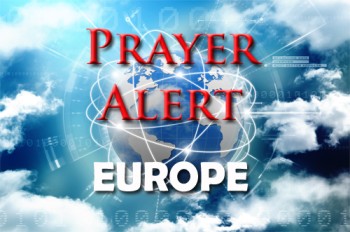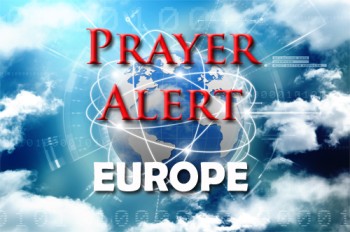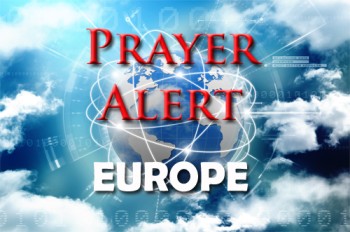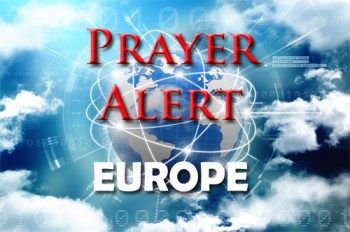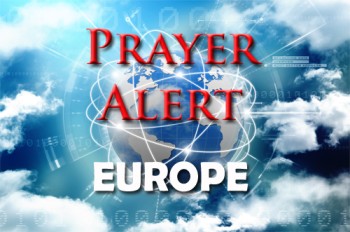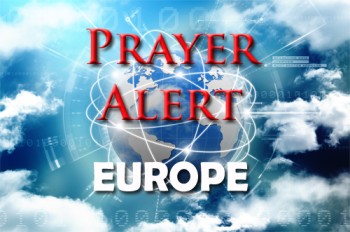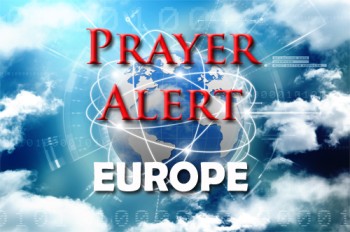Displaying items by tag: Europe
Ukraine: Russia refuses to accept NATO peacekeepers
At high-level talks with the USA in Saudi Arabia, foreign minister Sergei Lavrov has declared that Russia will not accept NATO peacekeeping forces in Ukraine under any peace agreement. The discussions marked the first known face-to-face meeting between Russian and American delegations since the invasion began. Both sides agreed to appoint teams to negotiate an end to the war, which US secretary of state Marco Rubio called a significant step. Ukraine was not invited, prompting Volodymyr Zelensky to express frustration over decisions being made without his country's involvement. European leaders held emergency talks in Paris but failed to reach a unified response to the negotiations. While the UK suggested a security presence in Ukraine, Germany and other European nations opposed the idea. Zelensky, visibly tired and upset, will also know that his country's chances of resisting - let alone defeating - Russian troops without American help are very slim.
Poland: a response to Vance’s criticism of European leaders
Former foreign minister Radosław Sikorski has responded to US vice-president JD Vance’s critique of Europe regarding migration and free speech. Vance, speaking at the Munich Security Conference, criticised European leaders for disregarding the will of their citizens, undermining elections, and failing to protect religious freedoms. He also questioned Britain's abortion laws and Romania’s recent election, calling for a reassessment of Europe’s approach to these challenges. Sikorski remarked that while Vance’s speech leaned more towards a philosophical one than one that was security-focused, he agreed on the need for greater European defence spending. He emphasised that the global security situation is changing, with rising threats, especially due to Russia’s actions.
Vatican: Pope Francis suffering from pneumonia
After being admitted to hospital on 14 February, Pope Francis has developed pneumonia in both lungs, and his condition remains ‘complex’. The 88-year-old pontiff has been battling a respiratory infection for over a week. A follow-up CT scan confirmed bilateral pneumonia, prompting adjustments to his treatment. Despite the serious nature of his illness, the Vatican reports that he remains in good spirits, spending time reading, resting, and praying. Francis' history of lung complications, including pleurisy and a partial lung removal in his youth, makes him particularly vulnerable to such infections. His illness has raised concerns over the upcoming Holy Year, a major Catholic ‘jubilee’ event expected to draw millions to Rome in 2025; uncertainty looms over his ability to fulfil his demanding schedule. See
Ukraine: Hegseth defends Trump’s phone call to Putin
US secretary of state Pete Hegseth has defended Donald Trump’s push for peace talks on Russia’s war in Ukraine, insisting it was not a betrayal of Kyiv. Speaking before a NATO meeting in Brussels, Hegseth emphasised the need for a negotiated peace but called Ukraine’s demands - restoring pre-2014 borders and NATO membership - ‘unrealistic’. Trump later confirmed he had spoken with Vladimir Putin, agreeing to initiate negotiations without prioritising territorial concerns or Ukraine’s NATO bid. European leaders voiced concern, fearing premature concessions could embolden Russia. Hegseth asked NATO allies to ramp up defence spending to 5%, a target the US itself does not reach. Volodymyr Zelensky, after speaking with Trump, reiterated his commitment to securing peace while ensuring Ukraine’s security. Questions remain over whether Moscow will accept a deal that meets Kyiv’s conditions. Trump’s advisers are set to meet Zelensky at the Munich security conference to discuss next steps.
Sweden: woman sentenced for war crimes against Yazidis
Lina Ishaq, a 52-year-old Swedish woman, has been sentenced to twelve years in prison for genocide and war crimes against Yazidis in Syria. She enslaved three Yazidi women and six children in Raqqa between 2014 and 2016, forcing them to wear veils, practise Islam, and endure physical abuse. This is Sweden’s first conviction related to IS crimes against Yazidis, a religious minority targeted for extermination. In 2014, IS launched a brutal campaign against them, killing 5,000 and enslaving thousands more. Ishaq, originally from Iraq, moved to Sweden as a child but later converted to Islam and joined IS in 2013. She fled to Turkey after IS collapsed and was extradited to Sweden in 2020. Sweden’s Yazidi community (numbering about 6,000) sees the conviction as a step toward justice, though Ishaq denies the charges and may appeal.
Austria: coalition government talks collapse
Talks to form Austria’s first far-right-led coalition collapsed after negotiations between the Freedom Party (FPO) and the conservative People’s Party (OVP) failed. The FPO, which won the most votes in September’s election, has struggled to reach an agreement with the OVP. Disputes over key ministries, including finance and interior, along with FPO demands on EU legal rulings and Russian sanctions, proved insurmountable. FPO leader Herbet Kickl blamed the OVP for insisting on ministry allocations before resolving broader policy issues. The OVP, in turn, accused the FPO of failing to commit to fundamental democratic principles, including Austria’s role as a reliable EU partner. With coalition talks broken, the president must decide whether to restart centrist negotiations or call a snap election, where polls suggest the FPO would strengthen its lead. Political uncertainty now looms over Austria’s government formation.
Sweden: ten dead after school shooting
A mass shooting at an adult education centre in Örebro has left ten people dead, including the suspected gunman, in what prime minister Ulf Kristersson called ‘the worst mass shooting in Swedish history’. Police have stated that the suspect acted alone, and have ruled out ‘ideological motives’. A number of others were injured, and local hospitals cleared extra space so that they could treat victims. Witnesses described scenes of terror, with students attempting to aid the wounded as gunfire erupted. Authorities locked down nearby schools for safety, and emergency rooms were cleared for victims. Kristersson called the tragedy a ‘painful day’. He asked people to give police the freedom and the space they needed to do their investigations, and stressed that there was no further risk to attending school the next day.
Germany / Ukraine: Scholz criticises Trump’s demand for rare earth resources
Olaf Scholz has criticised Donald Trump’s proposal to make US military aid for Ukraine conditional on access to the country’s rare earth resources, calling it ‘selfish and self-centred’. A Ukrainian source has said that resource-sharing had already been included in Volodymyr Zelensky’s ‘victory plan’, which has been presented to foreign leaders, including Trump. The future of US aid to Ukraine remains uncertain, with military assistance continuing but non-military aid programs frozen under the new administration. Germany is Ukraine’s second-largest military donor; however, Scholz has blocked proposed additional security assistance worth €3 billion unless it is covered by new government borrowing. He has also resisted sending Taurus cruise missiles, citing escalation concerns. As Ukraine seeks continued support, Western nations face internal debates over military aid, economic interests, and the war’s broader implications.
Germany: huge protest against collaboration with far-right
Tens of thousands of Germans have protested in Berlin against perceived political collaboration with the far-right Alternative for Germany (AfD). The demonstrations followed votes in which the centre-right Christian Democratic Union (CDU), led by Friedrich Merz, received AfD backing on immigration-related proposals. While Merz insists he did not seek AfD support, critics including former chancellor Angela Merkel view this as a violation of Germany’s post-war commitment to reject far-right alliances. The protests attracted around 160,000 participants. With national elections weeks away, CDU leads the polls, with AfD in second place. Merz has ruled out forming a coalition with AfD, but tensions remain high. Demonstrators, alarmed by potential shifts in Germany’s political landscape, have called on democratic parties to protect the nation’s values.
Ukraine: what the North Korean soldiers are experiencing
North Korean soldiers are reportedly fighting alongside Russian forces in Ukraine, employing brutal, near-suicidal tactics. Western intelligence estimates up to 12,000 North Koreans have been deployed to Russia’s Kursk region since November, with 4,000 killed or injured. Ukrainian special forces describe the troops as relentless, often refusing to surrender and committing suicide with grenades to avoid capture. They are using strange warfare strategies, removing body armour for speed, executing frontal assaults, and even using fellow soldiers as bait to target attack drones. They leave behind propaganda-filled notes pledging loyalty to Kim Jong Un and condemning Ukraine. Despite extensive military training, they are struggling with modern warfare, particularly drone technology, leading to high casualties.
